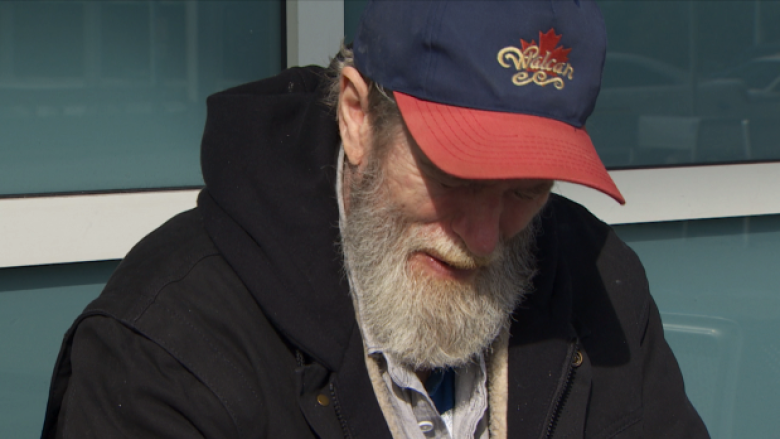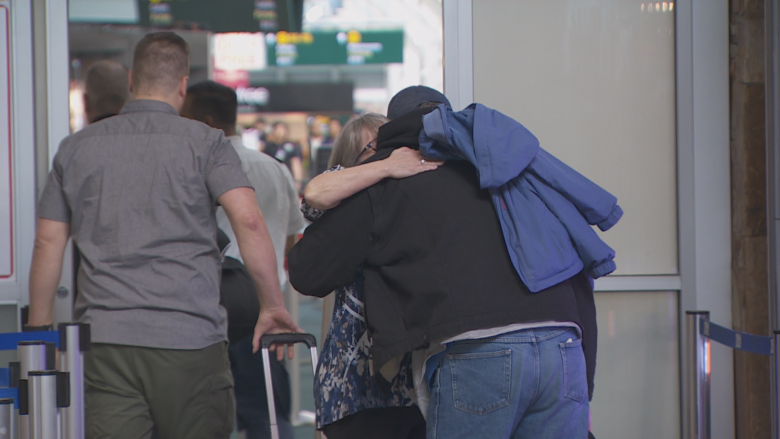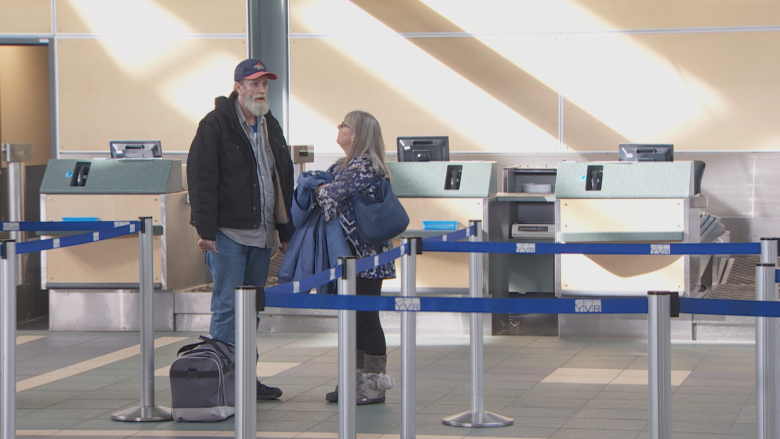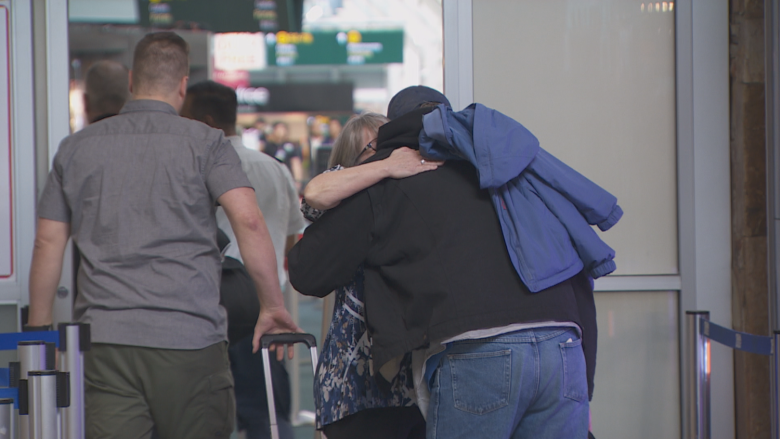'No idea what I'm going to do,' says man deported to Netherlands after nearly 6 decades in Canada
A 59-year-old B.C. man who had lived in Canada since he was a baby arrived in Amsterdam today after being deported to the Netherlands because of his criminal offences, which he says were due to his mental illness.
Len Van Heest was met at Amsterdam Airport Schiphol by his cousin Monique Lemstra, according to his brother, Daniel, who lives in North Vancouver.
"We have put in place a secure system for Len, where he feels secure and happy and is well cared for via our relatives in the Netherlands," said Daniel Van Heest.
Len Van Heest will temporarily stay with Lemstra and then move in with other Dutch relatives.
He gave a tearful interview Monday at Vancouver International Airport.
"This is the only home I've ever known," he said. "And they're kicking me out now.
"They're sending me to a foreign country, they're taking my mom away from me, all my friends. I'm devastated."
Van Heest moved to Canada with his parents when he was eight months old, and the country is the only home he has ever known. His mother has said not getting him Canadian citizenship was an oversight on her part.
Van Heest was first ordered deported in January 2008 after he was found inadmissible to stay in Canada because of a 2001 conviction for assault with a weapon.
His is one of several cases in which immigrants face removal after the previous Conservative government toughened laws regarding the deportation of non-citizen criminals, his lawyer Peter Golden said in an earlier interview with CBC.
According to court documents, he was convicted of more than 40 criminal charges between 1976 and 2013. He was denied permanent Canadian residency because of his criminal record.
Van Heest said his crimes were the result of bipolar disorder, which he developed as a teenager. He served nine months for assault, but said he's in control of his mental illness now and doesn't drink or do drugs.
Motion denied
After years of delays, Van Heest's latest motion to stay in Vancouver was denied last Thursday. He had applied for permanent residence status based on humanitarian and compassionate grounds.
Just before 3 p.m. Monday, Canadian border officials escorted Van Heest onto the plane.
"I always cheer for Canada, you know, and all the Canadians I root for," he said in thanking friends and family. "But they've taken it all away from me now."
In court documents, Van Heest said that he would not be capable of obtaining health care, housing, income or a social network in the Netherlands.
Van Heest leaves behind in Canada his mother, Trixie, 81, whom he lived with, as well as his brother, and his nieces and nephews.
"We play Scrabble. She does my laundry. I help her cut the grass and stuff. We're just the best of friends. It's devastating my mom, it's devastating me, it's devastating my whole family."
Green Party Leader Elizabeth May had appealed to Public Safety Minister Ralph Goodale and Immigration Minister Ahmed Hussen to stop the deportation.
"I'm very concerned because once a person is deported, it becomes extremely difficult for them to ever come back into Canada," May said in an interview.
"His only family is in Canada. He has no connections, that we know of, in the Netherlands. He doesn't speak the language. I can't even begin to imagine how he's going to manage. It's just heartbreaking."
A spokesperson for federal Immigration Minister Ahmed Hussen said the minister wouldn't comment on the case.
Like a 'foreign country'
Van Heest's lawyer, Robin Bajer, said he is appealing to have Van Heest granted permanent residence status on compassionate grounds. But that decision could take up to 36 months.
In the meantime, Van Heest will be waiting in limbo in the Netherlands. He said he doesn't know his relatives there very well.
"I have no plans once I arrive," he said. "My cousin is going to meet me there . . . or my auntie, or whoever she is, and I'll just take it from there.
"It's like a foreign country, I have no idea what I'm going to do."






